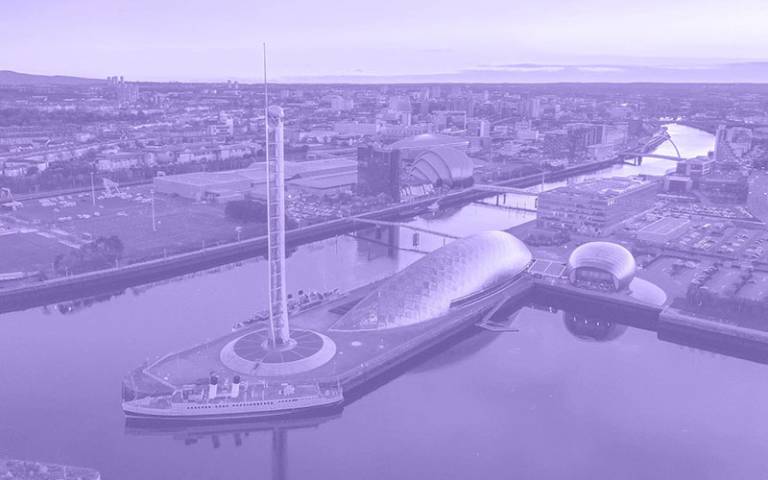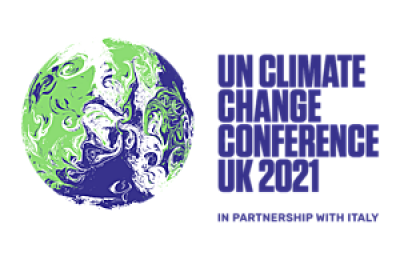UCL Institute of Archaeology contributions to COP26
21 October 2021
In the lead up to COP26, the United Nations Climate Change Conference, we are highlighting how UCL Institute of Archaeology research contributes to Climate Change Research, Policy and Practice.

As COP26, the United Nations Climate Change Conference, will take place in Glasgow from the 31 October to 12 November, here some of the ways in which Institute of Archaeology researchers are contributing to the understanding of past and present climates, reaching the aims of the sustainable development goals, climate action, climate justice, and to the COP26 conference itself.
Dorian Fuller and his team research ancient agriculture, plant domestication and its impact on social and environmental change from prehistory to ancient historical times, especially in Asia and Africa, including extended field research in India, China, Japan and Turkey. He also works on the response of past human societies to climatic changes. These are issues considered by a number of researchers as part of the Institute’s Anthropocene Research Network.
Matt Pope and colleagues at Archaeology South-East are involved in a number of projects exploring the impacts of climate change on coastal heritage sites, including a long-term project with Jersey Heritage to protect the site of La Cotte de St Brelade from accelerated marine erosion caused by more frequent storms and rising sea levels and a pilot project exploring how heritage sites at risk from coastal erosion/climate change can be rapidly surveyed ahead of their potential loss.

Julia Shaw’s recent research focuses on the deep history of medico-environmental worldviews and its relevance for discourse on the global biodiversity and climate-change crises. Her forthcoming book focuses on interactions between lowland irrigated agriculture and upland forest-based lifeways, and corresponding monastic, state, and 'alternative’ community governmentalities of land and water resources in India, drawing also on her work on contemporary attitudes towards urban wildlife, 'pests' and pesticides. She is a member of UCL Anthropocene and its Chemical Exposures reading group.
She co-organises a Cambridge-based campaigning group called Pesticide-Free Cambridge, aligned with Pesticide Action Network UK, that works with local councils and other stakeholders to explore alternatives to synthetic pesticide use in public and private urban spaces. Pesticide-Free Cambridge is a member of a coalition of local environmental groups that form part of the national COP26 Coalition which has been involved in a series of related events between September and November.
Elizabeth Graham’s research explores issues of past and present waste and its future legacies. In particular, it aims to show how waste and end-of-line materials can make positive contributions to soil formation—not as an end but as the first step in returning resources to the environment. Her research is contributing to a re-evaluation of waste as ‘input’ and exploring how this new conceptualisation of waste might be beneficial for some business practices in the era of climate change.
Theano Moussouri explores the role that food heritage can play in achieving a whole-system transformative change and moving towards global food security and nutrition. Janna Oud Ammerveld’s research considers how climate change is being engaged in the work of a variety of heritage managers and policy makers in a number of different countries.
Rodney Harrison will represent UCL at COP26. He is co-lead on Reimagining Museums for Climate Action, an AHRC-funded research project which aims to inspire radical changes in the museum sector to address the climate crisis. With Colin Sterling (UvA) and Henry McGhie (Curating Tomorrow), he is co-curator of the exhibition Reimagining Museums for Climate Action, which is part of the COP26 Green Zone in the Glasgow Science Centre. He will contribute to a number of events both inside and outside of COP26 in Glasgow, including co-organising the panel “Powering climate action through heritage policies, organisations, research and public programmes” which will take place in the COP26 EU Pavilion at 4pm GMT on 11 November. Virtual access to the exhibition is available via the project’s website and as part of the COP26 Digital Green Zone, hosted by Google Arts and Culture. Virtual access to events in the EU Pavilion is available by signing up to the COP26 EU Side Events Online Portal. In addition to the exhibition and events, the project will launch an open access book and museums toolkit at COP26.
Rodney is also a Co-Investigator on the Landscape Futures and the Challenge of Change: Towards Integrated Cultural/Natural Heritage Decision Making, which responds directly to the challenge that accelerated climate and environmental change poses for the natural and cultural heritage sector. A collaboration with the University of Exeter, The National Trust, Historic England and Natural England, Landscape Futures is an AHRC Impact and Engagement Follow-on from the Heritage Futures project, and is funded as part of the UKRI Landscape Decisions programme. Landscape Futures research features in the Historic Environment Forum’s Heritage Responds Report and ClimateChange Story Map, highlighting how heritage organisations are addressing the challenges of climate change. Rodney is one of two academic co-leads on the IoA’s new BA Heritage degree programme, which will accept its first cohort of students in 2023 and be part of the new UCL East School for Creative and Cultural Industries.
Read more
 Close
Close

